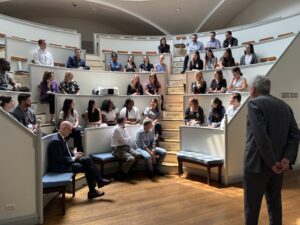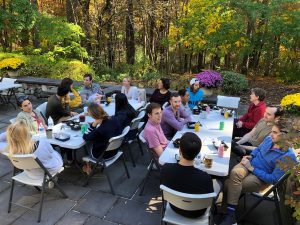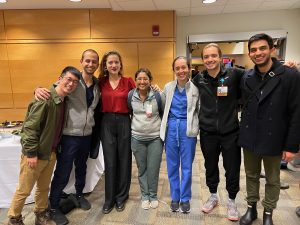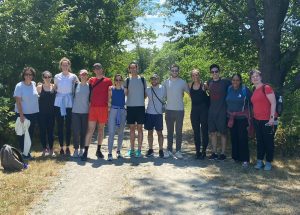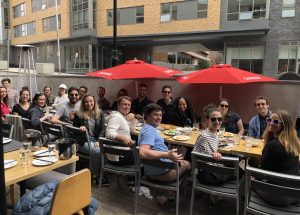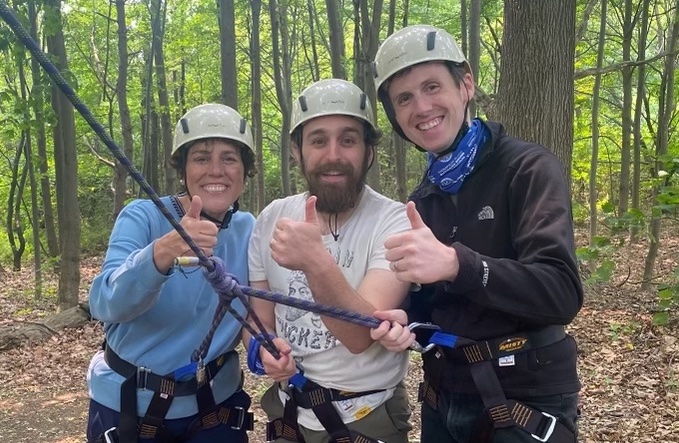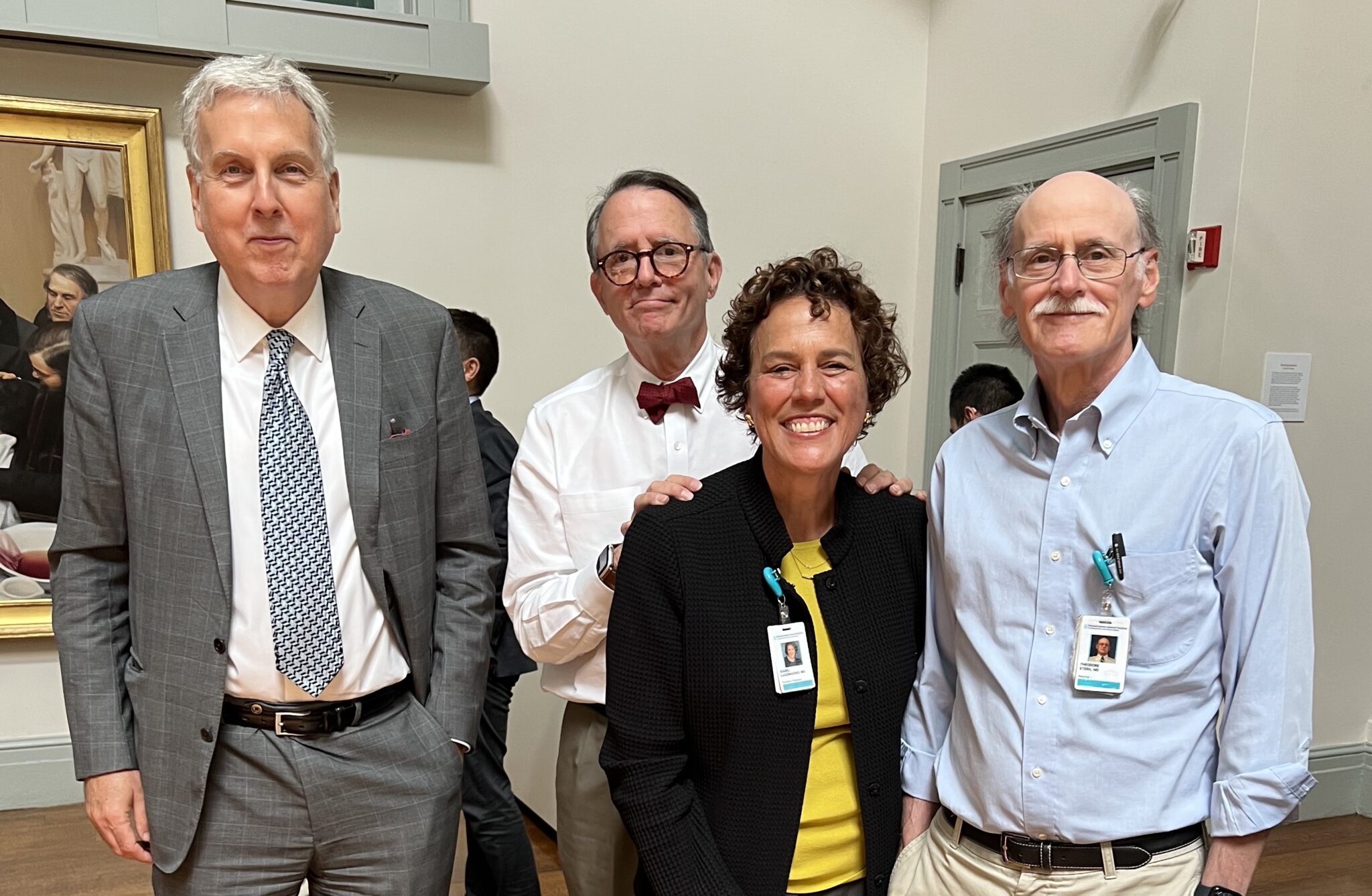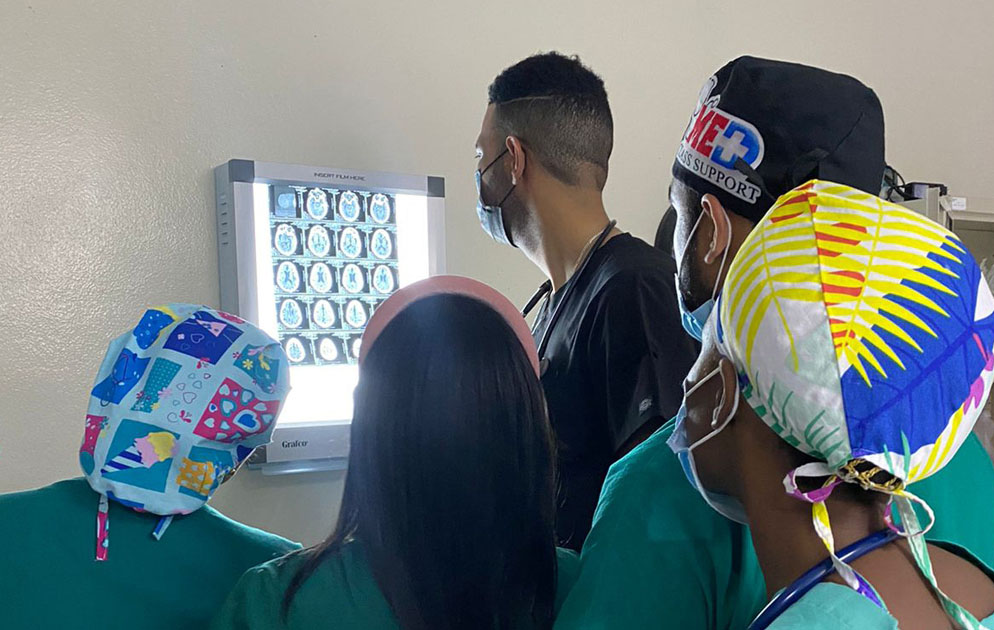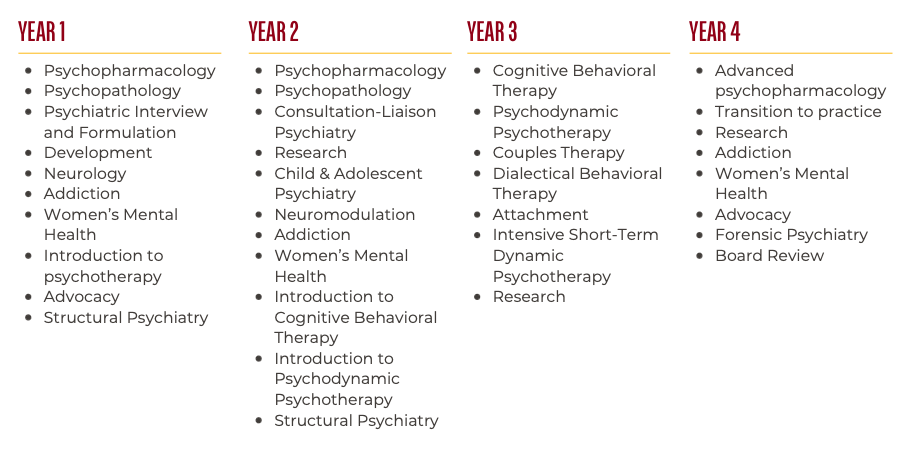Click for Didactic Curriculum Overview
MGH Acute Psychiatry Service (APS) (3 Months)
Residents rotate for three months through the MGH Acute Psychiatry Service (APS), a high-volume inner-city emergency service within the MGH Emergency Department. During this rotation, the resident will assess patients with acute psychiatric illnesses and manage the early manifestation and disposition of cases to a variety of settings. Residents take three sets of week-long nightfloat during this rotation. There are no weekend shifts during the APS rotation, and the rotation is divided into two portions, with half the rotation in the first half of the year, and half the rotation in the second half of the year.
McLean Schizophrenia and Bipolar Disorder Inpatient Unit (AB2) (3 months)
Residents rotate for three months at the McLean Schizophrenia and Bipolar Disorders Unit dedicated to the intensive treatment of severely ill inpatients with psychotic and affective disorders. During this rotation, residents become familiar with extended treatment in a biopsychosocial model for patients recovering from an acute episode of illness. Residents learn psychopharmacologic management and case administration, and become familiar with individual, group, and family therapy under the supervision of full-time staff psychiatrists. In tune with the clinical, teaching and research mission of this unit, residents will have special didactics on psychotic disorders and case conferences.
Community (6 Weeks)
Residents spend six weeks based at the Erich Lindemann Mental Health Center (ELMHC), Boston’s Downtown Public Sector community resources facility. Residents work with clients in a homeless shelter for people with serious mental illness and have numerous experiences with the integration of mental health, substance abuse and medical treatment as needed by the homeless individual. This care is provided by a multidisciplinary team in which our residents participate as a member. Residents evaluate patients in crisis, perform evaluations, and provide treatment in the shelter to facilitate ongoing care. This experience allows residents to work on multidisciplinary teams while becoming familiar with the interface between public agencies, federal agencies, the courts, other clinicians, and managed care systems.
MGH Blake 11 Resident-as-Teacher Rotation (6 Weeks)
Residents return to Blake 11 for this six weeks Resident-as-Teacher Rotation, providing clinical and educational oversight to the PGY1s and medical students, supervising, teaching, and coordinating daily activities. They also gain familiarity with administrative oversight of the unit.
McLean Geriatrics (4 Weeks)
The Geriatrics rotation includes 3 weeks of inpatient geriatrics, and provides residents with clinical skills relevant to treating geriatric patients with dementia and other degenerative and neuropsychiatric illnesses. Most, if not all, patients have significant medical co-morbidity and residents learn to integrate biological, psychological, and sociocultural factors in caring for these complex patients. Residents also spend 1 week in the Geriatric Psychiatry Outpatient Program at McLean, conducting new evaluations and follow-up visits for older adults with a wide range of neuropsychiatric disorders.
McLean Adolescent Partial Hospital Program (1 month)
The McLean Adolescent Partial Hospital Program serves adolescents from the ages of 12 to 19 with a variety of psychiatric disorders. This includes mood disorders, anxiety, autism spectrum disorders, substance use disorders, and those with a persistent pattern of self-injurious or suicidal behavior. The heart of their treatment is their participation in our daily cognitive behavioral therapy milieu program. Over the course of their rotation, MGH/McLean residents work with members of a multidisciplinary team where they evaluate adolescent patients and work closely with their families. They are also immersed in a milieu therapy model that focuses on the transformative power of safety, containment, and prosocial behavior. Residents co-lead psychotherapy groups including both skills-based groups and more traditional process-oriented groups. On this rotation, residents learn about childhood development, how to identify primary mental illness in childhood and adolescence, and how to deploy evidence-based treatments to adolescents across multiple different diagnostic categories.
Outpatient Psychiatry, 1/2 day per week
PGY2 residents spend one afternoon per week treating outpatients and providing both individual psychotherapy and psychopharmacologic treatment. Residents choose either MGH or McLean for their outpatient clinic site. Residents typically carry a caseload of 6-7 patients throughout the year, including 1-2 weekly therapy cases. Residents spend an average of 3 hours weekly seeing outpatients, and have 3 hours weekly of supervision related to their outpatient practice.
Core Didactic Curriculum
These seminars are held throughout the year on Wednesdays from Noon to 5:00 pm, and rotate between the MGH and McLean Hospital campuses every six months. Residents are protected from clinical responsibilities during this time. The required seminars for the PGY2 year are comprehensive, extending over the entire year. Speakers are leaders in their fields, exposing residents to current research and theory as applied to everyday clinical situations. Topics include introductory and basic psychodynamic psychotherapy, neuroscience, scholarly activity, human development, child psychiatry, medical ethics, case formulation, forensic psychiatry, and an introduction to cognitive behavioral therapy and group therapy. Residents from all classes interact together during the noon hour for the Resident Association Meeting, meetings with the training director or Chief of Psychiatry, or Journal Club. All classes have a T-group prior to the start of the afternoon seminars, in which the class meets weekly with a trained group therapist.
Call
6 weeks of nightfloat over the course of the year (3 weeks at MGH and 3 weeks at McLean, divided in 1-2 week blocks). Nightfloat is Sunday through Thursday night. PGY2 residents are also scheduled for weekend calls (Friday night, Saturday/night, or Sunday) at MGH or McLean throughout the year, at an average of 2 weekend calls per month. When rotating at McLean, PGY2s also work evening shifts (4-9pm) in the Clinical Evaluation Center, at an average of 2-3 shifts per month.
Vacation
Four weeks vacation, in 1 week blocks spread out over the course of the year.
PGY2 Rotations
| | | |
Emergency Psychiatry
(6 weeks) Acute Psychiatry Service
(APS), MGH
Blake 11 Resident-As-Teacher Rotation, MGH, (5 weeks)
&
Elective
(1 week) | Inpatient Psychiatry Bipolar and Psychotic Disorders Inpatient Unit (AB2), McLean | Emergency Psychiatry
(6 weeks) Acute Psychiatry Service
(APS), MGH
Community/Public Sector, MGH
(6 weeks)
| McLean Subspecialty Addictions (2 wks) Geriatrics (4wks) Child Psychiatry (4 wks) Nightfloat (2wks) |
Outpatient Clinic (1/2 day per week) |
Wednesday Core Didactics (1/2 day per week) |

